FORT LEONARD WOOD, Mo., Oct. 21, 2010 -- When the phrase "final field training exercise" is mentioned to most Soldiers in Advanced Individual Training, the images of pup tents, foxholes and nights in the woods are conjured up - unless you happen to be an intern resettlement specialist.
For the Soldiers of Company C, 701st Military Police Battalion, their final FTX is not conducted in the woods, but rather within the confines of prison walls. The 31E military occupational skill, intern resettlement specialist, is responsible for running the Army's confinement facilities.
"This is our culminating FTX," said Sgt. 1st Class Travis Hodge, noncommissioned officer-in-charge of the event. "It's not traditional in the sense that we go to the field, but this type of facility - whether it's a Regional Correctional Facility, Guantanamo or the Disciplinary Barracks at Leavenworth - is where these Soldiers will work in the future."
"The Soldiers go through a final five-day FTX running this correctional facility. We incorporate every aspect of what they would see at a real facility, only here, the inmates are fellow Soldiers and instructors from the class. We rotate them through so that everyone gets to be on guard force and as a prisoner during the five days," he said.
The facility, located at Stem Village on Fort Leonard Wood, has all the aspects of a real prison, but with the emphasis on training the Soldiers.
"We have a control room that functions the same as any military correctional facility," said Staff Sgt. Joshua Martin, 31E instructor and watch commander for the FTX. "In fact, we have everything that they will encounter at their first duty station ... an exercise yard, general population areas, dining area and single cells. We even incorporate a visitation period into the exercise, so the Soldiers will get an idea of what to watch for during that aspect of their shift."
"We emphasis accountability throughout their course of instruction, but during the FTX, they really get to see how important that is," Martin said. "From roll calls to shift changes, they get to fully appreciate the necessity of custody and control."
"The first days of the exercise start down at Camp Charlie, which is the type of facility they would see overseas, and then we move the event up to this facility which closer resembles what is at Regional Correctional Facilities," Martin said.
The seven-week course produces 60 to 80 trained Soldiers, and since the demand for intern resettlement specialists has increased, the school runs two classes at the same time, said Scott Stradinger, instructor.
"A few years ago, this MOS was going to be replaced with contract guards, but with 9-11 and the operations in Iraq and Afghanistan, the Army has seen a growth of this specialty," Stradinger said. "It was a very small portion of the MP force, but it has grown to meet the requirements of the force."
In addition to operating the facility as it would under day-to-day conditions, the Soldiers in Company C were subjected to several requirements that tested their mettle, such as a forced movement of a detainee, guards taken hostage and a riot in a cell block.
Not everyone got to be in every position, but there is enough rotation to show every Soldier the key aspects of the job and challenge them to apply what they learned during the previous six weeks, Martin said.
For assistant watch guard, Spc. Brandon Huggins, the lesson learned was one of leadership.
"It's all about accountability," Huggins said. "And knowing where your guards are supposed to be and where they really are."
Pvt. Mary Sawin came away from the exercise with a better understanding of the profession and of herself.
"I like to prove that I can do what the male Soldiers can do, and the job isn't about harassment - it's more about taking care of people," Swain said.
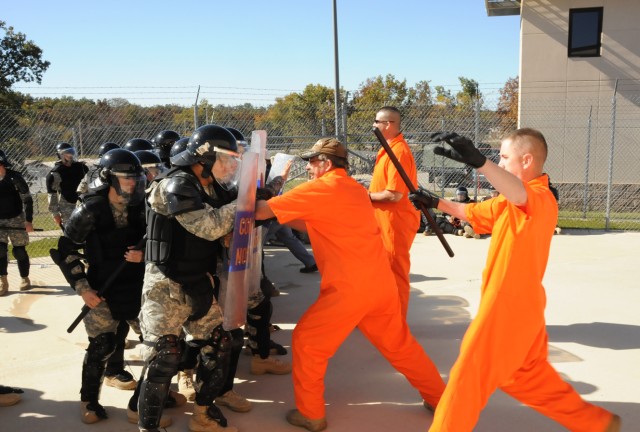
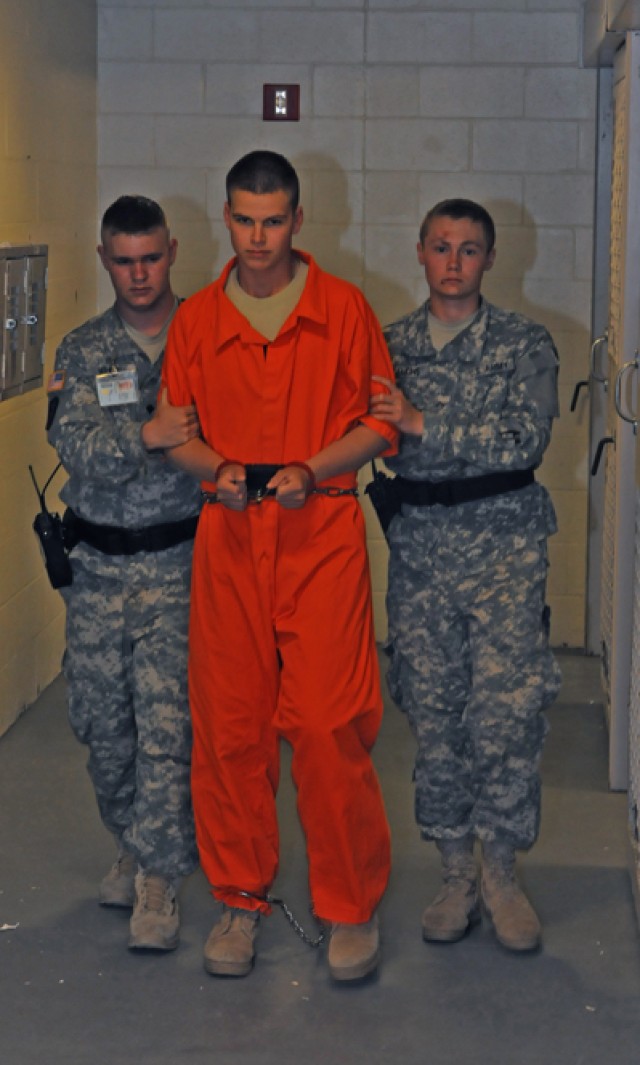
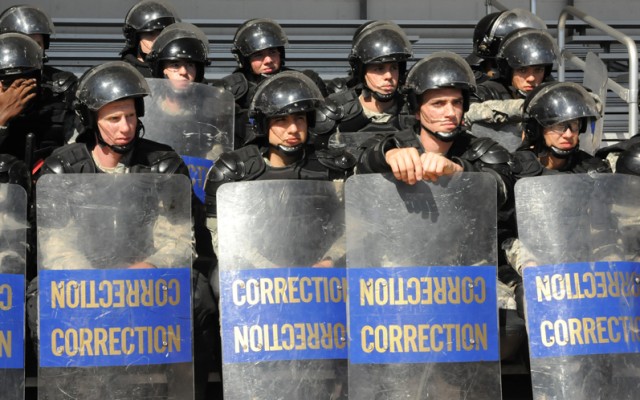
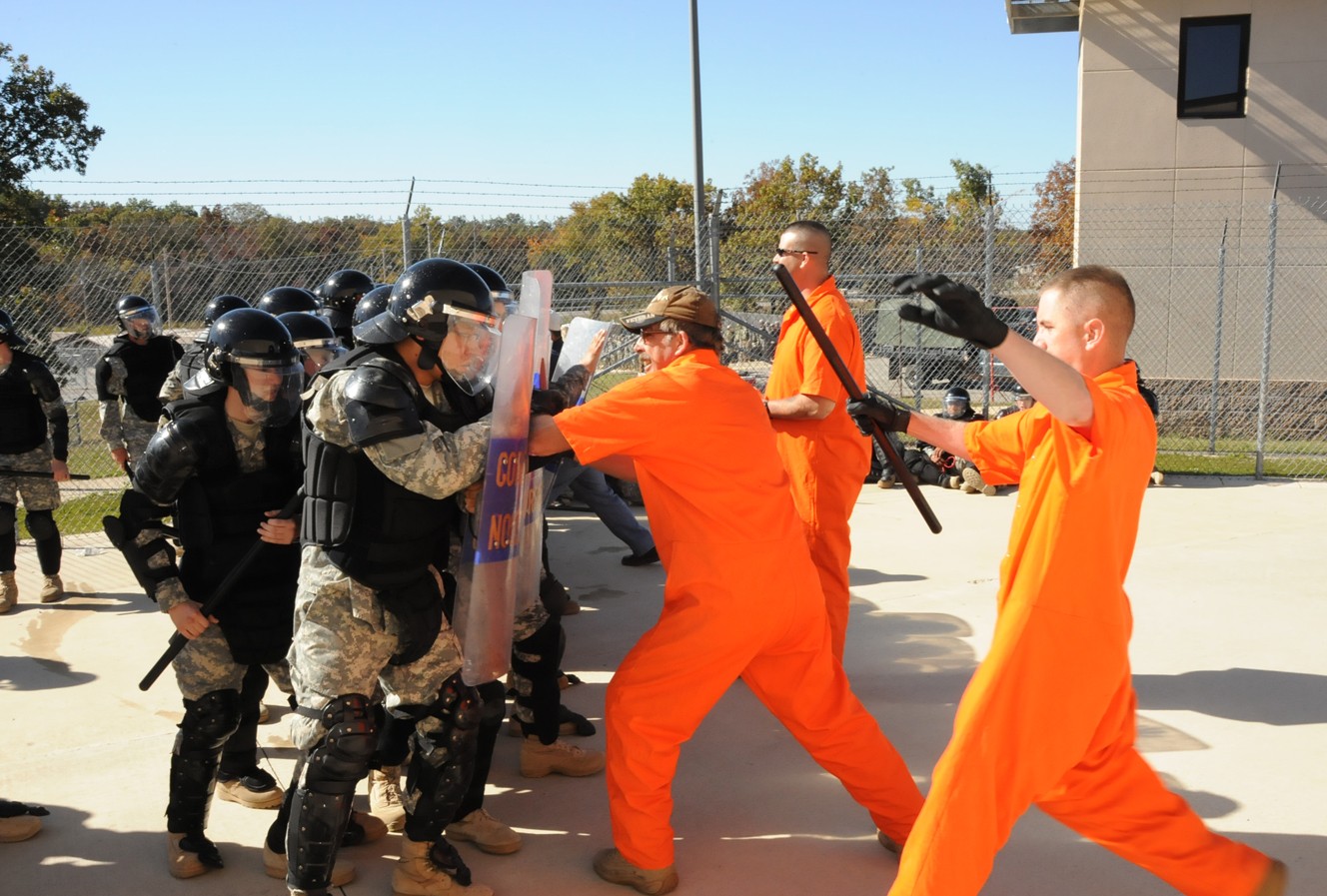
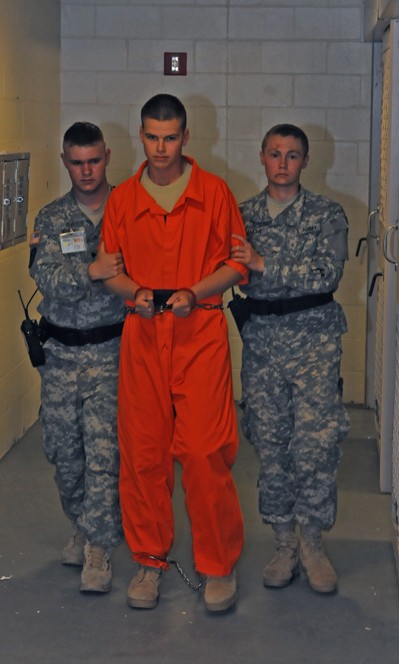
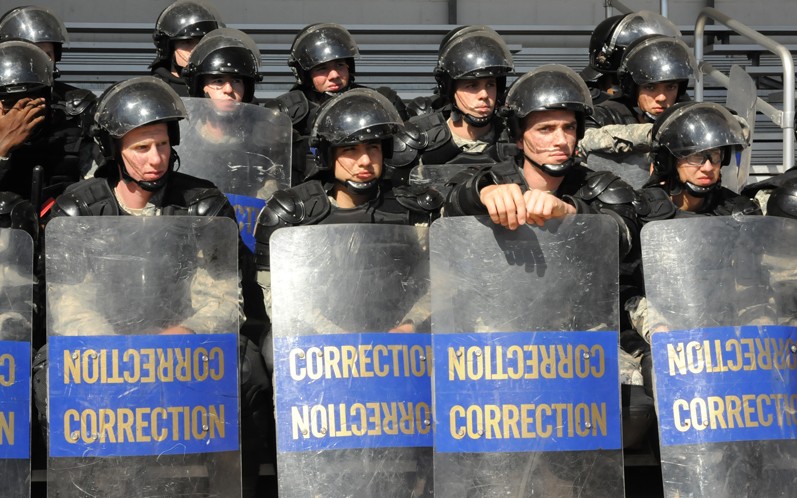
Social Sharing